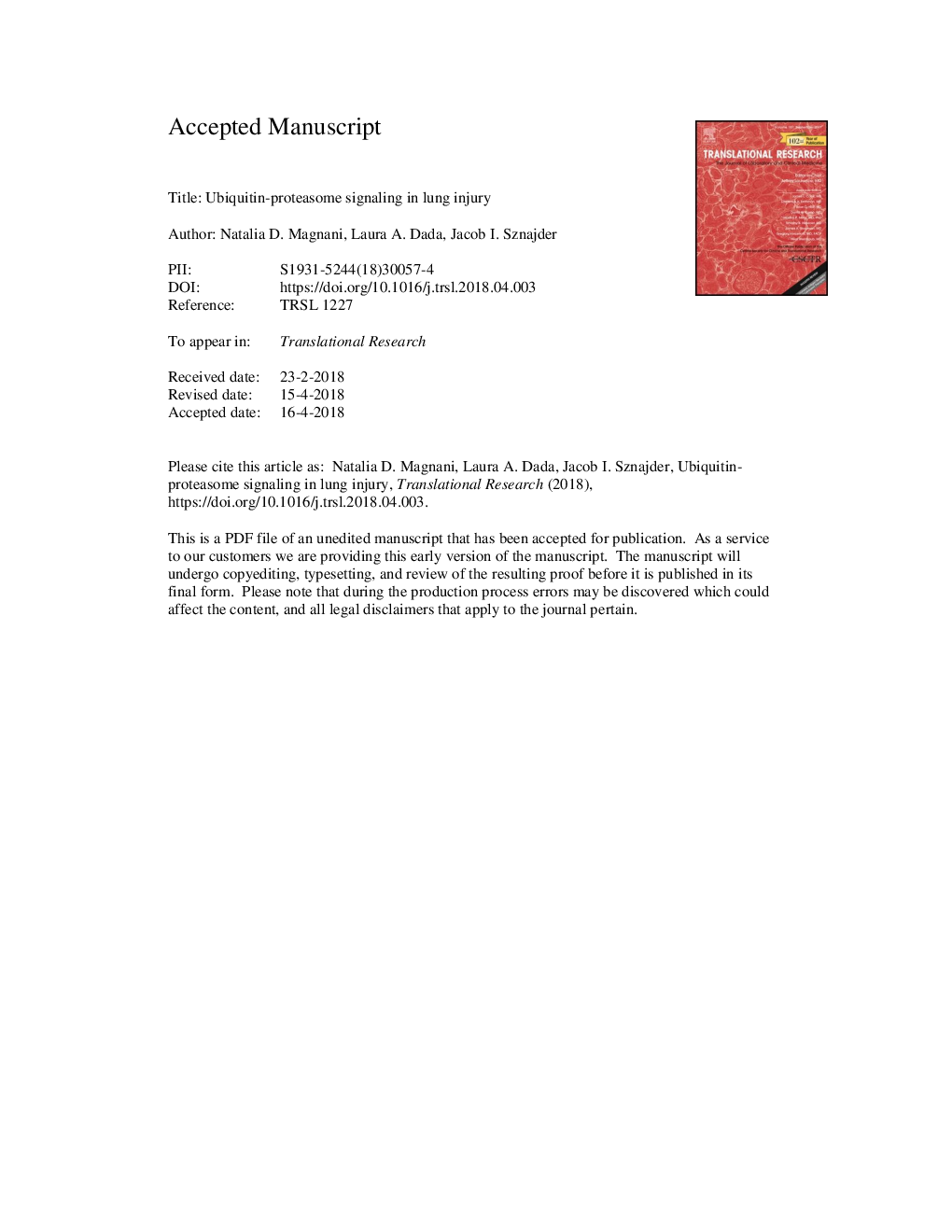| Article ID | Journal | Published Year | Pages | File Type |
|---|---|---|---|---|
| 10219255 | Translational Research | 2018 | 22 Pages |
Abstract
Cell homeostasis requires precise coordination of cellular proteins function. Ubiquitination is a post-translational modification that modulates protein half-life and function and is tightly regulated by ubiquitin E3 ligases and deubiquitinating enzymes. Lung injury can progress to acute respiratory distress syndrome that is characterized by an inflammatory response and disruption of the alveolocapillary barrier resulting in alveolar edema accumulation and hypoxemia. Ubiquitination plays an important role in the pathobiology of acute lung injury as it regulates the proteins modulating the alveolocapillary barrier and the inflammatory response. Better understanding of the signaling pathways regulated by ubiquitination may lead to novel therapeutic approaches by targeting specific elements of the ubiquitination pathways.
Keywords
RBRIKKSCFCLRTRAF2ARDSRipk1TAK1HECTNF-κBUBC13HOIPPKCζCullin-RING ubiquitin ligaseMET1HOIL-1LTNFR-associated factor 2N-terminal methionineGSK3AMPKSUMONEMOIFN-γHIF-1αCFTRTLRcIAPENaCIκB kinaseAdenosine TriphosphateATPAcute lung injurytight junctionsAliinterleukincellular Inhibitor of Apoptosistransforming growth factor-β-activated kinase 1SharpinRingcystic fibrosis transmembrane conductance regulatorAcute respiratory distress syndromehypoxia-inducible factor 1αnuclear factor kappa-light-chain-enhancer of activated B cellsLUBACToll like receptorsNF-κB essential modulatorNeddadherens junctionsepithelial sodium channelsmall ubiquitin-like modifierInterferon gammaglycogen synthase kinase-3Ubiquitin
Related Topics
Health Sciences
Medicine and Dentistry
Medicine and Dentistry (General)
Authors
Natalia D. Magnani, Laura A. Dada, Jacob I. Sznajder,
